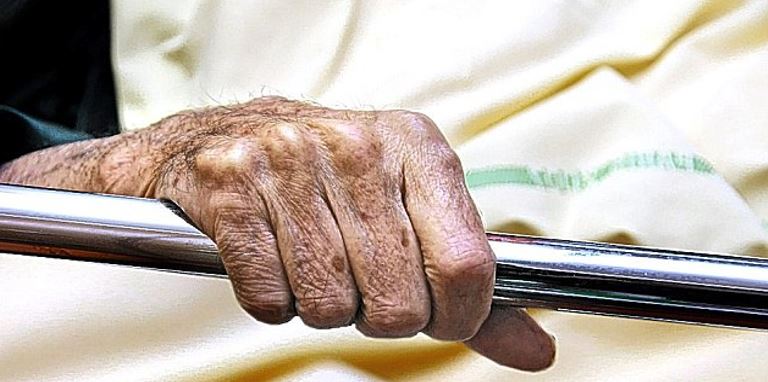
The National Statistical Office reported that in 1994 there were 4 million elderly people in Thailand and they formed 6.8% of the total population. In 2013, the amount soared to 10 million or 14.9% and the figures are expected to reach 20.5 million or 32.1% of the national population in 2040. What is critical is that of 6,394,022 people that the Ministry of Public Health has identified as the elderly, as many as 1.3 million or 21% are confined to their beds and houses and need health and social services.
The above-mentioned figures led to a national strategic plan on health promotion in the terminal stage of life for implementation between 2014 and 2016. The planning was a consensus of an issue-based health assembly in 2013. The plan was aimed at allowing all Thai people to pass away without any suffering and with their human dignity being guaranteed. It consists of three strategies. The first one concerns education on knowledge and attitudes about well-being in the terminal stage of life and good death, palliative care and the development of networks of people who provide such care.
The second strategy covers the development and management of a system to provide the quality palliative care that is standard and comprehensive for patients in the terminal stage of their life to ensure their well-being and good death. The third strategy is for the development of an administrative system to support services, an information network that creates efficient connectivity, a system of financial support for the elderly and the policy-making that facilitates palliative care services.
The National Health Commission approved the strategic plan two years ago and work related to the plan has made much progress given introduced policies.
Onjit Bamrungsakulsawasdi, a representative of the National Health Security Office (NHSO), said that the NHSO was creating a long-term care system for dependent older persons. The task started in the 2016 fiscal year with a budget of 600 million baht and the system could provide the care for 100,000 dependent older persons. The system will be expanded to cover all dependent older persons in three years.
The system also offers special welfare to three groups of the elderly: bed-bound older persons, house-based older persons who can still depend on themselves, and the active old persons who can still exit their houses. The activity daily living assessment (ADL) and need for care and medical instruments are also studied to prepare support. District-level hospitals will receive financial assistance worth 100 million baht and local participation will occur through a budget of 500 million baht that will be distributed to sub-district health funds.
“Now our policy is to seriously care for the elderly so that they have better life. The national health system will offer important services like health promotion, disease prevention, physical rehabilitation and long-term care for bed-confined older persons. These result from a resolution of the 6th National Health Assembly,” Ms Onjit said.
Despite the concrete progress in the care for the elderly, Prakasit Kayasith of the Thai Health Promotion Foundation pointed out that a group of people that could not be ignored consisted of those who were about to become old persons, currently at ages between 45 and 59. The people number about 14 million and can cause a crisis of an aging society because they will form a substantial part of the national population in 15 years. At that time, allowances for older persons will cost the state as much as 60 billion baht monthly plus huge health expense.
However, health service systems of Thailand have developed well in general regarding the national strategic plan on well-being in the terminal stage of life for implementation between 2014 and 2016 and other supportive policies in the pipeline.
“But I am worried about some local regulations that remain as obstacles. So, decentralization must be accelerated to make management more flexible,” Mr Prakasit said.
Besides, a study is being conducted on the possibility of shifting from family planning policies to family life planning policies mainly to support the work of the people who must take care of children and the elderly. If the study is successful, it will significantly help relieve the burdens of people at working age.
Source: Kom Chad Luek on January 22, 2016
Photo credit: www.dailymail.co.uk
